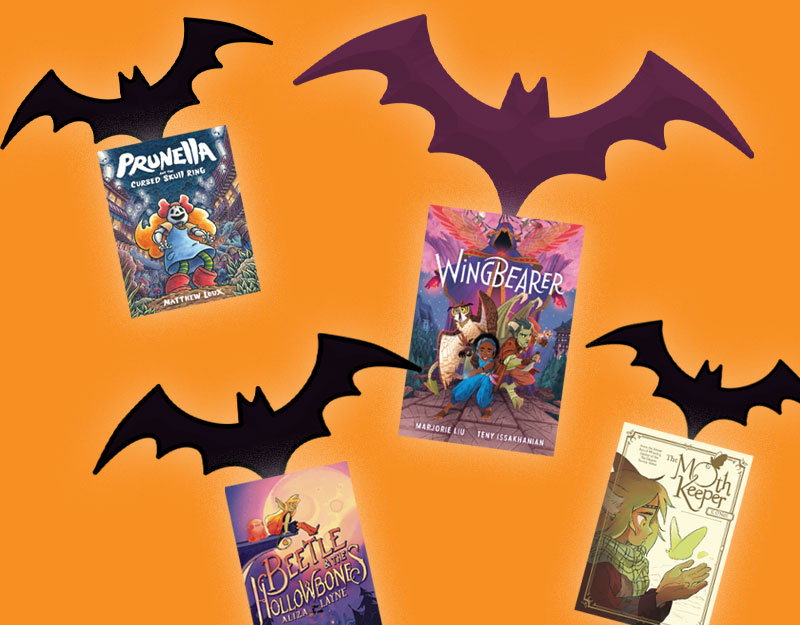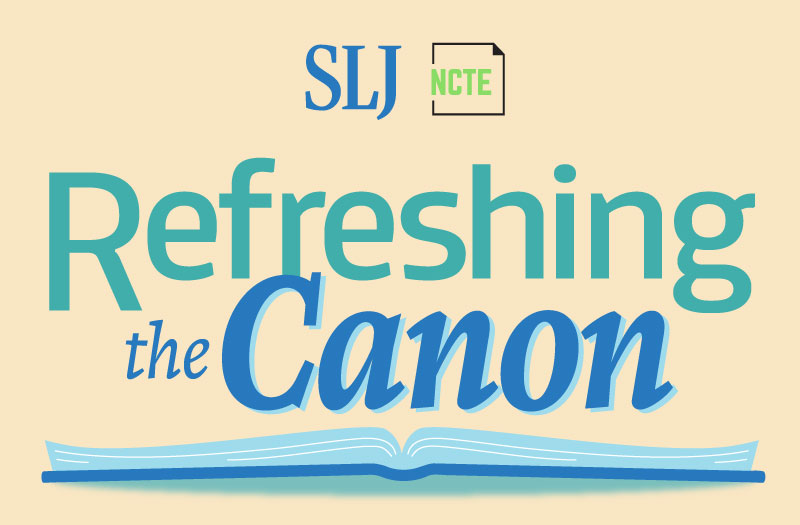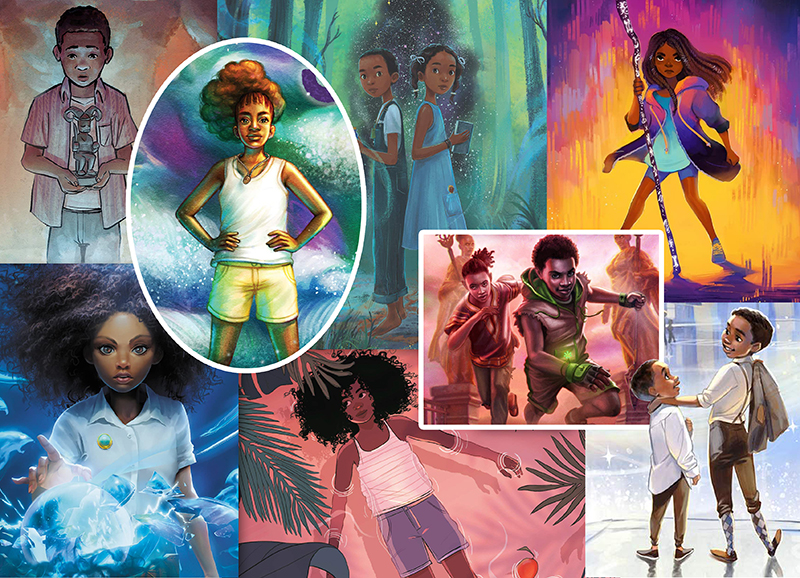I Was a Sixteen Year-Old Jesus Freak (Just Not In the Way You Think) by Terra Elan McVoy for #FSYALit
Today we are honored to host author Terra Elan McVoy as she discusses her personal teen faith journey and her book, PURE. You can read all the Faith and Spirituality in YA Lit Discussion (#FSYALit) posts here.
 Being a devoted Christian in my hometown of Tallahassee, FL, didn’t exactly make me a minority, but in 11th grade I sure felt like one.
Being a devoted Christian in my hometown of Tallahassee, FL, didn’t exactly make me a minority, but in 11th grade I sure felt like one.
It wasn’t because going to church or youth group was uncool, per se. In truth, I had a plethora of classmates and friends who attended both things with as much dedication and fervor as I did. Nearly every week you’d see someone wearing a Fellowship of Christian Athletes jersey in the halls (or, better His Pain Your Gain), and it wasn’t uncommon for a daily devotion, or a mission trip, to fall into normal hallway conversation. Being Christian—and being proud of it—certainly wasn’t anything abnormal.
ADVERTISEMENT
ADVERTISEMENT
And yet, I still felt like an outsider. To everybody else I hung around with, being Christian looked so easy. They were all smart, attractive, popular. Sure they went to church and Bible study; they were prayerful; they loved their families and their friends; they might not drink or have sex (and sometimes they did anyway), but their lives were still bright and shiny. They fit right in with everyone else.
For me though, following Jesus was a lot more complicated. I had amazing adult leadership in my church, and they all inspired me to really live His teachings, not simply wear a Christ-emblazoned Tshirt. I wanted my whole life to epitomize the teachings that filled me with so much joy and awe. So to avoid materialism, I shopped at thrift stores instead of the mall. To help my neighbors, I took babysitting jobs for church families instead of going to football games. Those times when I did go to parties (I wasn’t a total leper), if there was drinking, my commitment to my parents demanded I (very unpopularly) call them to pick me up. In order to speak out for the oppressed, I joined my activist mother at anti death penalty vigils, anti-nuclear protests, and marches fighting for the rights of AIDS victims. I did all these things with seriousness and dedication (and hoped to motivate others to do so too), but when my picture appeared in the paper at the front of a pro-choice rally, I knew it wasn’t getting me a date for Prom.
In fact, to almost everyone in school —even my publicly Christian buddies— I was hippie, strange, weird, difficult to categorize. I had arguments with FCA members about the stock market (which to me was the same thing as usury). My edgier friends started avoiding me, unsure whether I’d condemn their new party lifestyle. During lunch one day, a girlfriend (who like me preferred wearing vintage dresses and clunky shoes) accused me of making up my own religion when I reminded her that Jesus was a rebel who hung out with outcasts, and that if we really wanted to live in His image, we’d have to open our hearts to those we didn’t agree with, including gays. We didn’t keep talking after that.
Eventually, I learned to have conversations about other things.
Once I graduated high school and moved away from the wonderfully supportive community of my church, my faith became an even more private thing. It wasn’t that I was ashamed; my social circles simply didn’t include people who had the same kind of spiritual life I did, and I knew better than to try and engage anyone by then. Once, in graduate school, I did try telling lover about my belief in God and I how I felt it, particularly, when looking at art. He responded by carefully explaining to me how my faith was simply a social construct that was, at my age, ridiculous to cling to.
So I continued to keep things to myself.
Until in 2004, when I was living working in publishing in New York. As part of the office culture, every month or so, a stack of media clips would circulate in the office, showcasing any publicity our titles had gotten. One morning while perusing this pile, a statistic jumped out at me. It may well have been the very Barna Group quote that has inspired this blog: “nearly 6 out of every 10 teens are engaged in some type of group spiritual activity in a typical week.”
Wherever it came from, that quote gave me a lot of pause. America was still deeply reeling from 9/11. Our vocally Christian president had plunged our country into the early stages of war. Fox News and Karl Rove were everywhere, and it felt like every day another supporter of the hard religious right was getting either a lot of power, a lot of publicity, or both. I thought Christians were getting a really bad rep.
Looking at that brief newspaper bit, I considered the teenager out there—one of those sixty percent—who might be feeling the exact same way I did: someone who fiercely believed in God, and Jesus, just not in the same way as those hardliners on the news. I wondered what her or his story might look like, and started messing around in my free time with a story idea.
Soon after that I saw “Saved,” which gave me some courage, and then a friend who knew about my secret project shared an article with me about purity rings. These two things, plus a lot of revising and a lot of doubt, went into the cauldron of creativity from which emerged my first novel, Pure.. It’s the story of Tabitha McCabe, purity ring wearer and Jesus devotee, whose own beliefs get thrown for a loop when one of her closest friends breaks her own promise, and another ostracizes her because of it. Tabitha struggles, like I did, with the often contradictory nuances of the Bible, the challenges of true forgiveness, and what it is Jesus actually calls us to do, even if it means we lose friends because of it.
ADVERTISEMENT
ADVERTISEMENT
 I wrote Pure to give a voice to those who are really battling with what it means to be a person of the Christian faith, on top of the regular difficulties of being a high school student. It’s bad enough after all, navigating parents and friends, pop culture and romance. Adding challenging elements like caring for the needy, or forgiving your enemy can only make things harder.
I wrote Pure to give a voice to those who are really battling with what it means to be a person of the Christian faith, on top of the regular difficulties of being a high school student. It’s bad enough after all, navigating parents and friends, pop culture and romance. Adding challenging elements like caring for the needy, or forgiving your enemy can only make things harder.
I didn’t have a clear road map when I was a teenager for any of this, and Pure doesn’t offer much of one either. Tabitha finds, as I did, that walking the walk of your beliefs is much, much harder than just paying them lip service, and it’s far easier to feel lost than other people might make it look. By the end of the book, however, Tabitha’s learned a lot about friendship, and faith. She a stronger understanding of her own beliefs, even after they’ve been challenged and shaken. Maybe especially so. Practicing her spirituality is a complicated, messy, difficult journey for Tabitha, but it’s one I hope readers will see she ultimately benefits from.
It’s definitely one, I’m certain, my 11th grade self did too.
Meet Our Guest Blogger, Terra Elan McVoy
When I am not reading or writing, I like to do a lot of crafty things (especially with paper and photography) and cook or bake, preferably for friends. On top of being an author, I am also currently a bookseller at Little Shop of Stories.
Terra Elan McVoy is the author of 6 YA books and several MG books, which you can find out more about at her website.
About PURE:
Promise. Betrayal. Confession. Revenge. Tabitha and her four best friends all wear purity rings, symbols of the virginity-until-marriage pledge they made years ago. Now Tab is fifteen, and her ring has come to mean so much more. It’s a symbol of who she is and what she believes—a reminder of her promises to herself, and her bond to her friends. But when Tab meets a boy whose kisses make her knees go weak, everything suddenly seems a lot more complicated. Tab’s best friend, Morgan, is far from supportive, and for the first time, Tabitha is forced to keep secrets from the one person with whom she’s always shared everything. When one of those secrets breaks to the surface, Tab finds herself at the center of an unthinkable betrayal that splits her friends apart. As Tab’s entire world comes crashing down around her, she’s forced to re-examine her friendships, her faith, and what exactly it means to be pure.
“I love this book. Like, love it love it. My heart expanded when I read it—yours will too!” —Lauren Myracle, bestselling author of ttyl and ttfn
Filed under: #FSYALit, Faith, Spiritual Life, Spirituality
About Karen Jensen, MLS
Karen Jensen has been a Teen Services Librarian for almost 30 years. She created TLT in 2011 and is the co-editor of The Whole Library Handbook: Teen Services with Heather Booth (ALA Editions, 2014).
ADVERTISEMENT
ADVERTISEMENT
SLJ Blog Network
Happy Poem in Your Pocket Day!
This Q&A is Going Exactly As Planned: A Talk with Tao Nyeu About Her Latest Book
More Geronimo Stilton Graphic Novels Coming from Papercutz | News
Parsing Religion in Public Schools
ADVERTISEMENT







